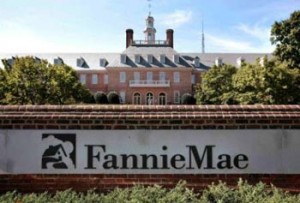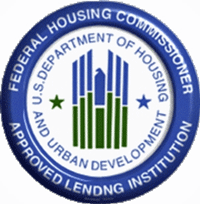
The United States has filed a civil mortgage fraud lawsuit against Deutsche Bank AG and its wholly owned subsidiary, MortgageIT Inc. The government’s complaint seeks damages and civil penalties under the False Claims Act for repeated false certifications made to the U.S.
According to the government’s complaint filed May 3, 2011 in Manhattan federal court: Between 1999 and 2009, MortgageIT was an approved direct endorsement lender, and endorsed more than 39,000 mortgages for FHA insurance, totaling more than $5 billion in underlying principal obligations. These mortgages were highly marketable for resale to investors because they were insured by the full faith and credit of the United States. MortgageIT and Deutsche Bank, which acquired MortgageIT in January 2007, made substantial profits through the resale of these endorsed FHA-insured mortgages.
Stated in the complaint, MortgageIT repeatedly made false certifications to HUD to obtain approval of mortgages that MortgageIT underwriters wrongfully endorsed for FHA insurance. These mortgages were not eligible for FHA insurance under HUD rules. Notwithstanding the mortgages’ ineligibility, underwriters at MortgageIT endorsed the mortgages by falsely certifying that they had conducted the due diligence required by HUD rules when, in fact, they had not. By endorsing ineligible mortgages and falsely certifying compliance with HUD rules, MortgageIT wrongfully obtained approval of these ineligible mortgages for FHA insurance, thereby putting millions of FHA dollars at risk.
To date, the Federal Housing Administration (FHA) has paid insurance claims on more than 3,100 mortgages, totaling $386 million, for mortgages endorsed by MortgageIT. Total claims against Deutsche Bank AG could cost well over $1.15 billion dollars.
The government’s complaint seeks treble damages and penalties under the False Claims Act for the insurance claims already paid by HUD for mortgages wrongfully endorsed by MortgageIT through the false statements of Deutsche Bank and MortgageIT. In addition, the United States seeks compensatory and punitive damages under the common law theories of breach of fiduciary duty, gross negligence, negligence and indemnification for the insurance claims that HUD expects to pay in the future for mortgages wrongfully endorsed by MortgageIT as a result of Deutsche Bank’s and MortgageIT’s false statements
My take on this is, it’s about time the banks paid for the mess that they have gotten us into. Like I’ve said many times, its not the mortgage brokers or the real estate agents who set the lending standards, it was the banks. I’ve talked to many people who were in the lending side of the banks. They were told to just make the loan, we don’t care if they can pay it back. What do you think?
Source The United States Department of Justice
For all your real estate needs, call or email:
John J. O’Dell
Real Estate Broker
O’Dell Realty
(530) 263-1091
jodell@nevadacounty.com
DRE#00669941





